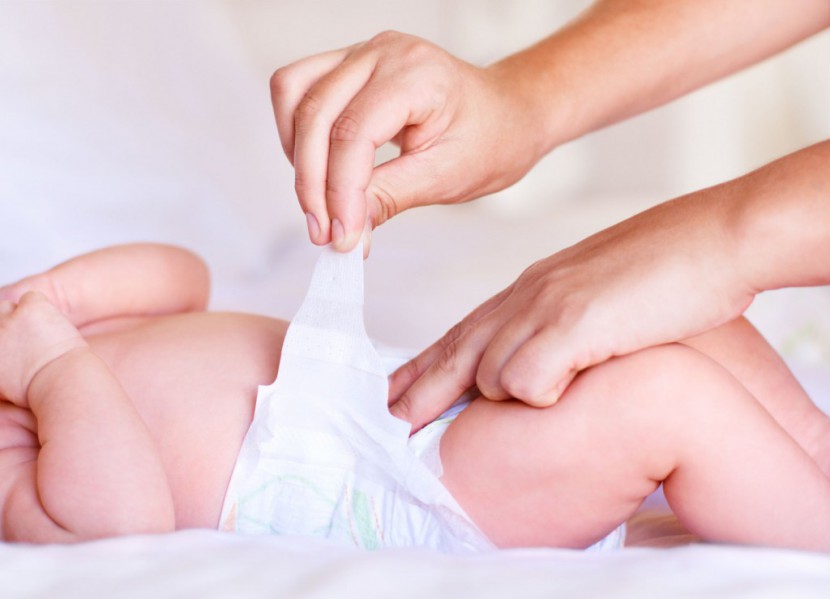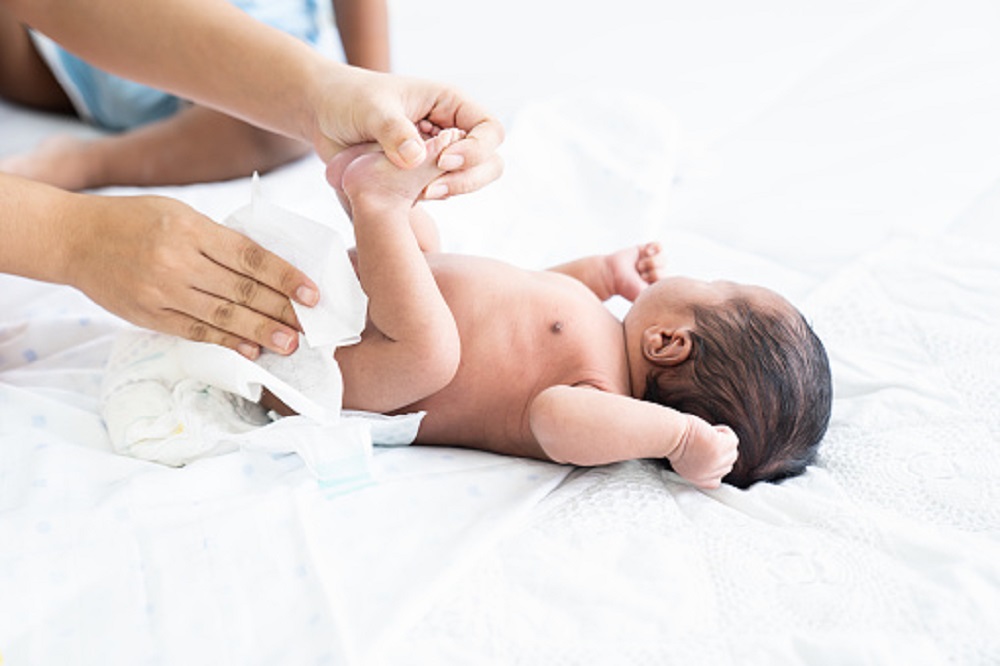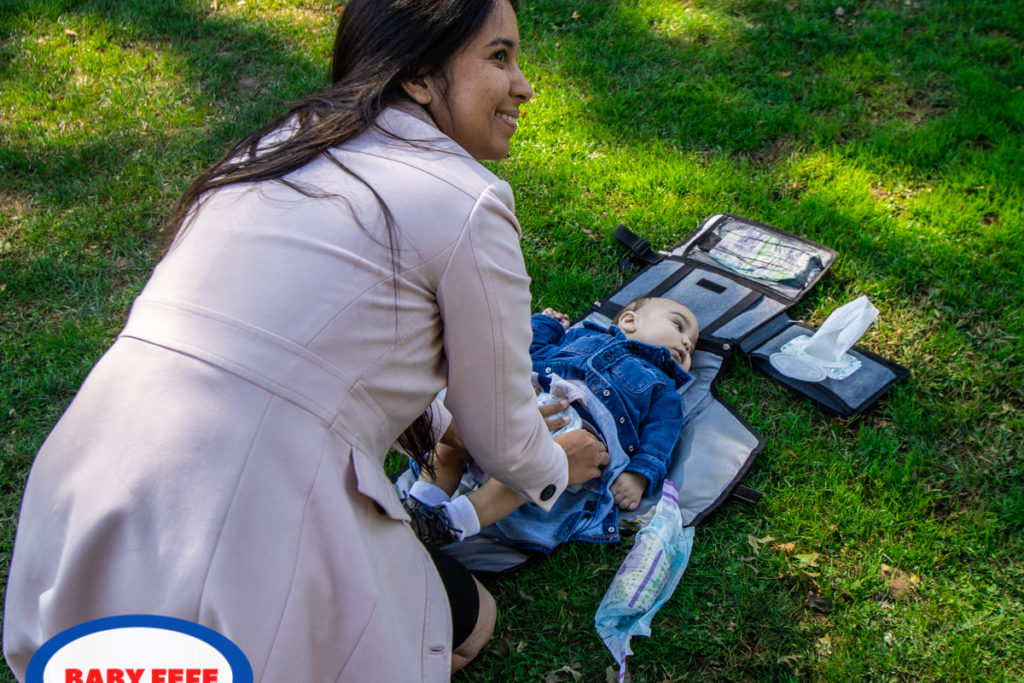How often should you change baby diapers? One of the most common questions every new parent will have while changing their baby’s diaper every now and then. Changing Diapers regularly is not only necessary for their health and comfort, but it can also aid in the prevention of diaper rash and other skin irritations.
In this post, we’ll go over how frequently you should change your baby’s diaper, as well as the advantages of utilizing a portable diaper changing pad and how to pick the perfect one for your kid.
How Often Should You Change Your Baby’s Diaper?
Newborns
Throughout the first few weeks of life, babies require numerous diaper changes, often as many as 10 to 12 times per day. This is because to their small bladders, which cannot contain as much urine as older babies.
Infants
You might expect to change your baby’s diaper every 2 to 3 hours as they get older. Some newborns, however, may require more frequent diaper changes if they have sensitive skin or are prone to diaper rash.
Toddlers
When your child is a toddler, you may be able to increase the time between diaper changes to 4 to 6 hours. Nonetheless, it is still critical to check their diapers on a regular basis and change them as soon as they get dirty.
Full diaper Signs
In addition to checking your baby’s diaper on a regular basis, look for indicators that their diaper needs to be changed. A bloated diaper, a strong odor, or apparent moisture on the outside of the diaper are examples of these.
Benefits of Regular Diaper Changes: Ensuring Your Baby’s Health and Comfort
As a new parent, you want to make sure your child is safe and comfortable at all times. Frequent diaper changes are an important element of baby care that might assist you in meeting this aim. In this post, we’ll look at the advantages of frequent diaper changes for your baby’s health and comfort.
Preventing Diaper Rash and Skin Irritations
One of the most important advantages of frequent diaper changes is the prevention of diaper rash and other skin irritations. When a baby’s diaper is wet or soiled for an extended period of time, the moisture and germs in the diaper can irritate the skin, resulting in severe rashes. A filthy diaper can also lead to skin infections and sores, which can be painful and difficult to heal.
You can avoid diaper rash and other skin irritations by changing your baby’s diaper on a frequent basis. Maintaining a clean and dry environment for your infant decreases the chance of bacterial growth and skin discomfort. To clean the diaper region, use a gentle wipe or a damp cloth, and apply diaper cream as needed. This practice will help to calm your baby’s skin and avoid diaper rash.
Preventing Urinary Tract Infections
Urinary tract infections (UTIs) are prevalent in infants and can be extremely painful. When germs invade the urethra and bladder, they cause painful urination and frequent sobbing. Babies are more likely to acquire UTIs because their urinary tracts are shorter and closer to the anus, allowing bacteria to enter more easily.
By lowering the number of bacteria in the diaper area, regular diaper changes can help prevent Infections. When your baby’s diaper is wet or soiled for an extended period of time, it provides a warm, moist environment that promotes bacterial development. You may limit the number of bacteria in your baby’s diaper and lessen their risk of acquiring an infection by changing their diaper frequently.
Improving Overall Comfort and Sleep Quality
A clean, dry diaper can make a major difference in your baby’s overall comfort and sleep quality. When a baby’s diaper becomes moist or soiled, he or she may become irritable, fussy, and difficult to calm. This discomfort can also have an impact on their sleep quality, resulting in sleepless nights and an irritable mood.
You can improve your baby’s general comfort and sleep quality by changing his or her diaper on a frequent basis. A dry diaper makes your baby feel more at ease, which can contribute to improved sleep habits and overall health. A well-rested baby is more satisfied and cheerful, which makes caring for them and enjoying the early months of motherhood simpler.
Tips for Changing Your Baby’s Diaper
Changing your baby’s diaper can be a difficult process, especially for first-time parents. Yet, with some experience and a few helpful hints, you can quickly become a diaper change pro. Here are some pointers to make the procedure go more smoothly:
Be Prepared with the Right Supplies
Before you begin changing your baby’s diaper, make sure you have all of the necessary supplies on hand. A clean diaper, wipes, diaper rash cream, and a portable diaper changing mat are all required. Having all of the supplies on hand can help to speed up the process and keep your baby from fidgeting.
Pick the Right Time
Timing is everything when it comes to changing your baby’s diaper. It’s best to change your baby’s diaper before or after a feeding, as babies are more likely to have a bowel movement during or after a feeding. Also, choose a time when your baby is calm and relaxed, and avoid changing their diaper when they are hungry, tired, or upset.
Safety First
During a diaper change, always ensure that your infant is safe and secure. Never leave your kid unattended when using a portable diaper changing pad on a flat surface, such as a changing table. To keep your infant from rolling off the table, keep one hand on them at all times.
Dry and clean Thoroughly
Cleaning and drying are critical steps in preventing diaper rash and other skin irritations. Wipe the diaper region gently with wipes, wiping from front to back for girls. Use diaper rash cream if necessary after patting the area dry with a clean cloth or paper towel.
Benefits of Using Baby Wipes
Baby wipes are an essential necessity for parents who have newborns or young children. They are not only necessary for cleaning up diaper messes, but they also provide various additional benefits. The following are some of the advantages of utilizing baby wipes:
Portability and convenience
One of the most significant advantages of baby wipes is their portability. They may be used anywhere, at any time, and are small enough to fit in a diaper bag or handbag. This makes them ideal for on-the-go cleaning whether traveling or running errands.
Gentle and Safe for Sensitive Skin
Baby wipes are designed to be gentle and safe on your baby’s sensitive skin. They are manufactured with gentle materials and are free of harsh chemicals that might irritate the skin. This makes them great for wiping your baby’s cheeks and hands as well as cleaning up sticky diaper areas.
Soothing and moisturizing
Many baby wipes contain hydrating and calming substances like aloe vera and chamomile. These components moisturize and soothe your baby’s skin, allowing them to feel more at ease and relaxed. This is especially good for babies with sensitive or dry skin.
Versatile and Multi-Purpose
Baby wipes aren’t simply for changing diapers! These can be used to wipe your baby’s face and hands after meals or playtime, clear up spills and messes, and even wipe down surfaces like high chairs and changing tables.
Cost-Effective
For parents, using baby wipes might be a cost-effective solution. They are frequently less expensive than conventional cleaning products and can serve numerous functions. As a result, they are a cost-effective option for parents who wish to keep their kids clean and comfortable without breaking the bank.
Benefits of Using a Portable Diaper Changing Pad
A portable diaper changing pad is one of the best investments you can make as a new parent. Here are some advantages of using one:
Convenience
A portable diaper changing pad allows you to change your baby’s diaper anywhere without worrying about finding a clean surface.
Hygiene
Public restrooms may be a breeding ground for germs and bacteria. A portable diaper changing pad offers your kid a clean and sanitary surface.
Safety
Safety straps are generally included with portable diaper changing mats to keep your baby secure during diaper changes, lowering the chance of a fall.
Versatility
Several portable diaper changing pads include extra features like as pockets for storing diapers and wipes or a built-in changing surface.
FAQs
How frequently diaper should be changed?
Diapers should normally be changed every 2-3 hours. Let the infant wear the diaper for many hours or until the diaper feels wet before changing the baby. If the infant defecates, the diaper should be changed right away, and the baby should be cleansed before putting on a fresh diaper every time.
How long can I leave a wet diaper on?
Thus, throughout the day, keep an eye on your diaper’s wetness indicator (the little line in the front that changes from yellow to blue when there’s moisture within the diaper). Change wet diapers as soon as you detect them, and try not to go more than three hours between changes.
How often should I change baby diaper at night?
You do not need to change your baby’s diaper if they are napping. They aren’t bothered by a dirty diaper, so you shouldn’t be either! If your baby wakes up during the night, whether to eat or just to sleep, try to limit stimulation and forgo diaper changes if feasible.
Is it OK not to change diaper at night?
Fortunately, the solution is straightforward, and it will allow you to obtain the most rest possible. You can generally put your infant to sleep unless they are excessively wet or have pooped. There’s no need to wake your kid every time they wet their diaper a bit.
Do I need to wipe baby after pee?
Not every diaper change may require a wipe. If your baby has only urinated, then you can probably skip wiping to avoid unnecessary irritation. However, always wipe after every poopy diaper, and always wipe front to back to help prevent the spread of bacteria.
Is it OK to leave a baby in a wet diaper at night?
While you may not like it, you may leave a wet diaper alone all night and simply change it in the morning. The only time you should do otherwise is if your baby’s diaper has leaked through their PJs. You must change it if they have had the ‘whole’ toilet experience during the night.
Conclusion
To summarise, changing diapers is an important element of baby care. Newborns may require up to 12 diaper changes per day, whereas infants may require changes every 2 to 3 hours. When your child is a toddler, you can increase the time between diaper changes to 4 to 6 hours.
Diaper changes on a regular basis can help to avoid diaper rash and skin irritations, urinary tract infections, and improve general comfort and sleep quality. Check your baby’s diaper for indicators of wetness or soiling on a frequent basis, be prepared with the correct supplies, choose the right time, and maintain safety and cleanliness during diaper changes.
New parents may keep their babies healthy and comfortable by following these suggestions.





